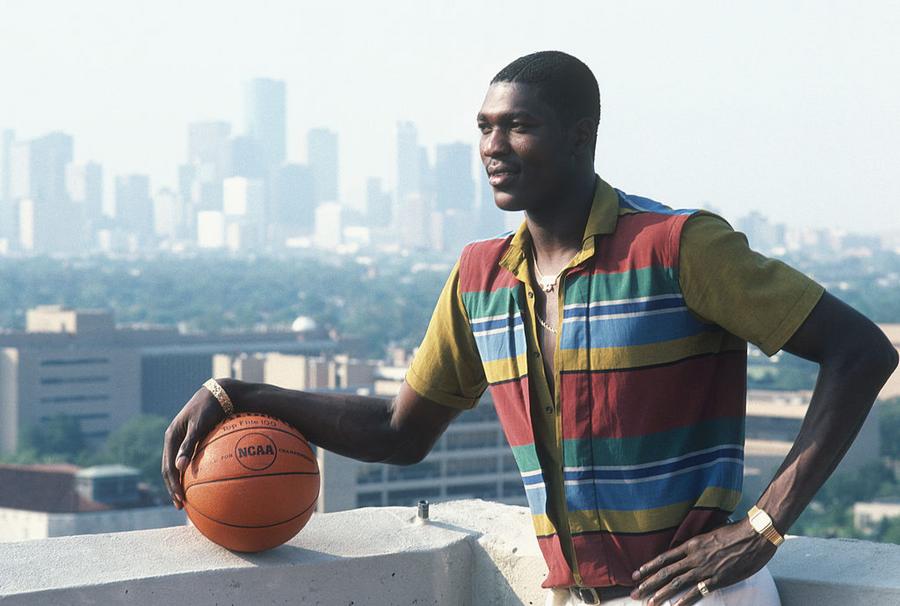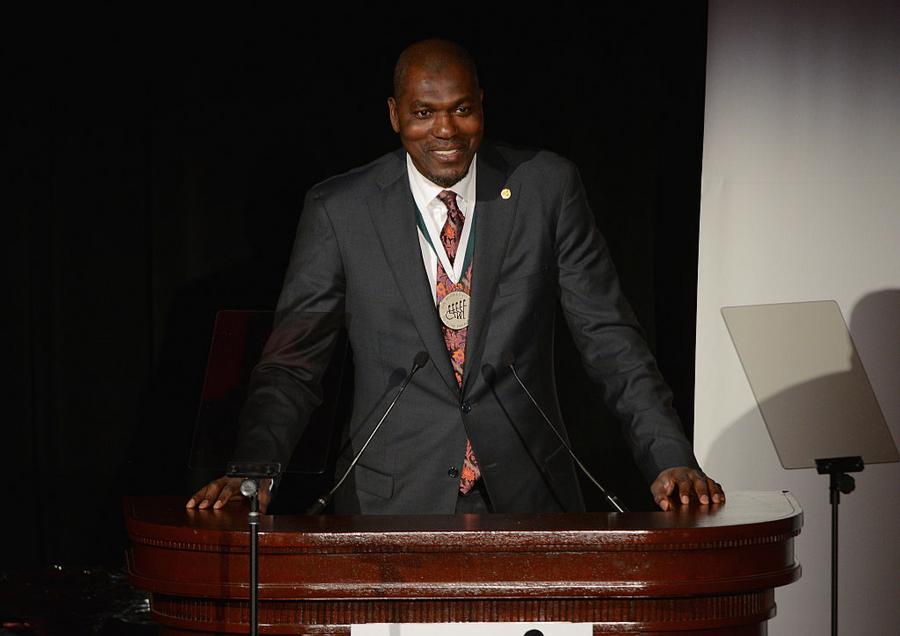Hakeem Olajuwon is best known for his silky footwork, unblockable fadeaway, and dominance in the paint. During his nearly two-decade NBA career, Olajuwon redefined the center position, earning 12 All-Star selections, two Defensive Player of the Year awards, an MVP, and back-to-back championships with the Houston Rockets in 1994 and 1995. His graceful athleticism and cerebral style earned him the nickname "The Dream," and a permanent spot among the NBA's all-time greats.
But what's even more impressive is what Olajuwon has done after leaving the game. While many athletes struggle to maintain their wealth or drift into obscurity, Olajuwon launched a second act that may be just as remarkable as his first. Through a quiet, calculated, and deeply personal approach to real estate investing, he's built a $300 million portfolio — not with flashy developments or borrowed money, but with patience, discipline, and his own cash. No endorsements, no debt, and no drama. Just results.
In the two decades since his retirement, Olajuwon has become one of the most successful athlete-turned-entrepreneurs in the world. His secret? A faith-driven, debt-free investment strategy grounded in Islamic principles and powered by a keen understanding of Houston's real estate market. It's a playbook few others follow — but it's made him one of the richest former players in NBA history. And perhaps more impressively, he's done it entirely on his own terms.

(Photo by Focus on Sport via Getty Images)
From NBA Greatness to a Second Act in Real Estate
Olajuwon's Hall of Fame career gave him more than accolades — it gave him capital. The Nigerian-American center earned over $110 million in salary during his time in the NBA, almost all of it with the Houston Rockets. He racked up 12 All-Star nods, an MVP, two Defensive Player of the Year awards, and brought Houston its only two NBA titles. By the time he retired in 2002, his legacy on the court was secure.
But even before stepping away from basketball, Olajuwon had already begun laying the foundation for his post-NBA life. At the peak of his playing days, he set aside portions of his $14–16 million annual salary to invest in real estate. By 2006 — just four years after his final game — his 25-property portfolio had already surpassed $100 million in value. It was clear that "The Dream" had a new dream: building wealth on solid ground.
A Faith-Driven, Debt-Free Philosophy
Unlike most real estate moguls, Olajuwon refuses to use debt. As a devout Muslim, he adheres to Islamic principles that forbid interest. That means no mortgages, no credit lines — just cash. "It's against Islamic law to charge or pay interest," he once said, "so I never seek outside financing."
This approach may make transactions more expensive upfront, but it gives him something rare in real estate: complete control. He never faces pressure from lenders, never risks foreclosure, and isn't vulnerable to rising interest rates or economic downturns. "I have been blessed to be able to work with my own capital," he told The New York Times, "which gives me the ability to decide when I want to sell, as opposed to having a bank loan hanging over my head."
His strategy demands patience — and it's worked. Free from the financial clock that lenders impose, Olajuwon can wait out market cycles, hold for long-term gains, and walk away from any deal that doesn't feel right. "I like real estate because, you know, it's real," he once said, drawing a contrast to more volatile investments like stocks.

Bryan Bedder/Getty Images
Home Court Advantage in Houston
Olajuwon didn't have to look far to build his real estate empire. He focused almost entirely on Houston, where he played college and pro ball and built his public identity. "It's where I have the home court advantage," he explained. That hometown knowledge gave him a competitive edge few investors could match.
He specialized in spotting properties poised for growth — especially those near large public developments or infrastructure improvements. As Houston expanded its light rail system and revamped its sports districts, Olajuwon moved quickly. He bought land near Metro rail lines, Minute Maid Park, the Texas Medical Center, and even NASA's Johnson Space Center, where he developed a 41-acre retirement community.
His current holdings include apartment buildings, commercial real estate, parking garages, and single-family homes. He bought the city's former Federal Reserve Bank and turned it into a mosque. He owns the former World Trade Center building near downtown. And he's done it all without a dollar of borrowed money.
Many of his acquisitions were initially viewed with skepticism. Local brokers thought he was overpaying for land that was already fully developed. But Olajuwon saw something others didn't — future value. Again and again, he resold those properties at double or even quadruple the purchase price, sometimes within just a few years. "He buys high and sells higher," one Houston developer marveled.
A Championship Portfolio Built to Last
Olajuwon's ability to time markets and spot undervalued properties is no accident. He brings the same work ethic to real estate that he did to basketball. He studies city plans, reviews satellite images, tracks infrastructure projects, and consults with local experts. His investment decisions are never rushed — they're built on preparation and vision.
Now in his early 60s, Olajuwon splits his time between Houston and Amman, Jordan. His real estate investments have given Hakeem Olajuwon a net worth of $300 million. That's enough to make him the seventh-richest NBA player in the world.
Even from abroad, he keeps an eye on Houston's market and remains ready to strike when the right opportunity appears. Olajuwon isn't pressured to sell or expand — his portfolio is built for long-term growth. His story proves that discipline, local knowledge, and a strong guiding philosophy can be just as powerful as any on-court skill.
In a world where most fortunes are built on leverage, Olajuwon built his with zero debt. That's a legacy as rare — and enduring — as any championship ring.










 Bengali (BD) ·
Bengali (BD) ·  English (US) ·
English (US) ·